Dominiq Reagh, 18, has battled Crohn’s disease most of his life.
He first began experiencing debilitating pain as a child.
As an elementary school student, he underwent a year of testing and procedures that helped doctors determine a diagnosis.
His fight has been continuous since.
He’s had two major flare-ups—one in seventh grade and, most recently, one this past year.
Each time, he found himself in the hospital.
His constant battle with the inflammatory bowel disease hasn’t stopped him from carving out a life for himself.
This remarkable young man has attended school regularly, even playing a lead role in his favorite sport—soccer.
In fact, he didn’t just make it onto his high school varsity soccer team. He has excelled, earning a scholarship to play at the University of Findlay this fall.
When he has to, he even plays through excruciating pain.
He attributes much of his success to strong support from family and friends and to his own God-given drive and determination to keep his health challenges from dominating his life.
But he also credits Spectrum Health medical teams, the doctors and nurses who he says have gone above and beyond to help him in his journey.
Focusing on today
Chele Pippin-Reagh, Dominiq’s mom, has seen how her son’s day-to-day experiences often become a roller-coaster ride.
“He may have a really great week, but then the next not feel so well,” Pippin-Reagh said. “We don’t wait for him to feel great again to enjoy life. We’ve learned to be grateful for where we are now. We hold closely to plans, live in the day and don’t take it for granted.”
Deborah Cloney, MD, has been by Dominiq’s side since the beginning—ever since he received the diagnosis of Crohn’s disease and colitis in March 2011, at age 8.
“Crohn’s disease is chronic,” said Dr. Cloney, the section chief of pediatric gastroenterology and hepatology with Spectrum Health Helen DeVos Children’s Hospital.
“Once you have it, most people will always need medication,” she said. “There’s no cure yet. With the right combination of medication and a healthy diet, (Dominiq) can get the inflammation under control and put them in remission.”
Dr. Cloney recognizes the unique drive in Dominiq.
“The severity of his illness is not common, but his ability to cope with it is exceptional,” she said.
Flare-ups
In his elementary years, Dominiq was able to reach remission through lower-tier medication. In 2016, when he reached seventh grade, he experienced his first major flare-up.
“He was eating a ton and losing weight,” Pippin-Reagh said. “He became lethargic. His abdominal pain was excruciating.”
Initially, Dominiq attended school despite the pain. But eventually, it grew too severe.
His mom took him to Helen DeVos Children’s Hospital, where doctors placed him on multiple medications.
“For many kids, that would have changed them—but he didn’t change,” Dr. Cloney said. “He stayed a joyful guy and bounced back. He’s got a great sense of humor.”
In the years that followed, Dominiq managed to cope with the disease and again reach remission.
A rough year
Then came June 2020.
Dominiq’s mom remembers clearly how his pain and symptoms mushroomed.
“Just as he was preparing to try out for his senior year of soccer—as well as try out for college teams—his symptoms increased astronomically,” Pippin-Reagh said. “Bleeding, cramps, pain, weight loss, fatigue.”
He continued to train even as his pain levels were off the chart, his mom said.
In July 2020, Dominiq and his family hoped a new medication would relieve the symptoms.
He completed several college ID camps and readied for his soccer season as a high school senior—while continuing to battle his health troubles.
Last fall, he shined on the field.
Then, in November 2020, he tested positive for COVID-19. His body, already tasked by the flare and medication change, didn’t fully bounce back.
On Dec. 2, his parents took him to Helen DeVos Children’s Hospital. Tests revealed he had severe ulcers and inflammation in his colon.
Eyes on college
The hospital stay didn’t stop Dominiq from competing remotely for college scholarships.
The night before an online scholarship competition, it became an all-hands-on-deck scenario. Dominiq and his parents reached out to members of the children’s hospital team to help him meet his deadlines for the scholarship process.
The nurses learned Dominiq needed to log in and complete timed essays in the morning—the same time nurses would normally be taking his vitals and drawing blood.
They arranged for him to tackle the scholarship work while they saw to his health needs.
“Everyone was so accommodating,” Pippin-Reagh said. “Amid a flurry of needles, tubes, stethoscopes and meds, the hospital staff got everything that was needed as he logged on.
“Their efficiency would have put the most expert NASCAR pit crews to shame.”
The efforts proved successful.
Later, while still in the hospital, Dominiq’s dad used a sheet and an elevated bed tray to create a special table so his son could sign his Letter of Commitment to play for the University of Findlay in Ohio.
Helen DeVos Children’s Hospital nurse Abby Smith, RN, remains amazed by Dominiq’s perseverance.
She remembers how he kept his smile and positive attitude all throughout the hospitalization.
“During his admission, he openly spoke of his faith, relationships and diversity at a level I would expect from an adult,” Smith said. “He was always so positive and driven. His main focus throughout my time at his bedside was education.”
Staying positive
While Dominiq recently found himself fighting another flare-up of Crohn’s, he’s confident he’ll be heading to college this fall.
In the meantime, he continues to give back, raising awareness about his disease. For fundraising, he designs and sells T-shirts he dubbed “D’s T’s.”
The first one he and his mom designed in 2017 was a picture of a flaming gut, illustrating how he feels when the disease flares up. His 2020 design simply says HOPE, which is what he holds on to.
“I feel like all of the pain is worth it, as long as I can use it to help other people,” he said. “I can sympathize with other people and raise awareness for what they and myself are going through.
“I pray and trust that God will take care of me.”
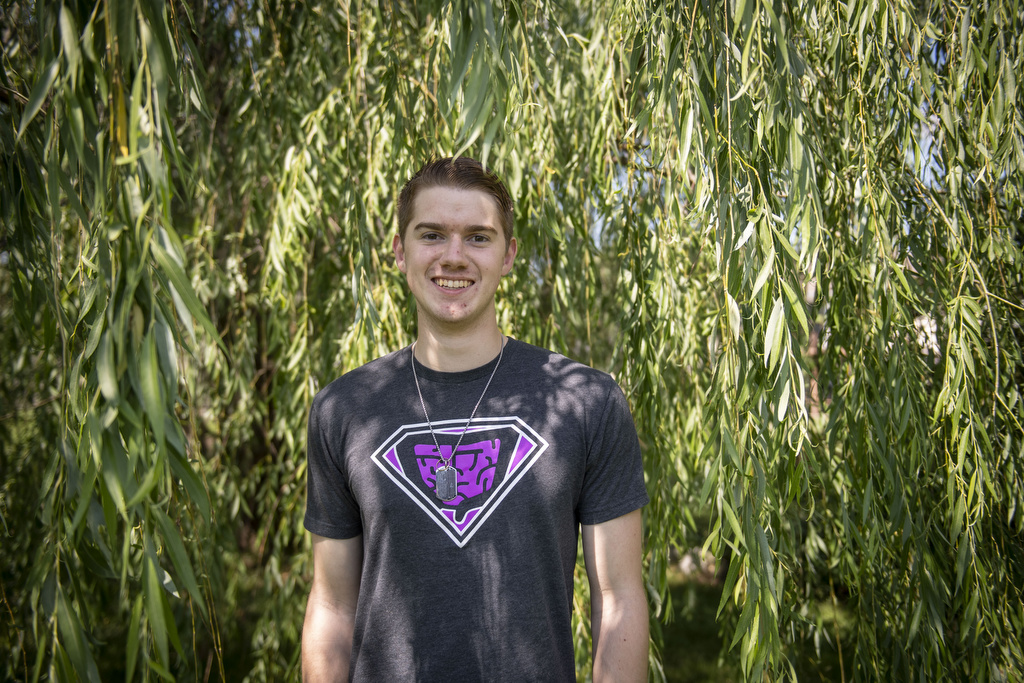
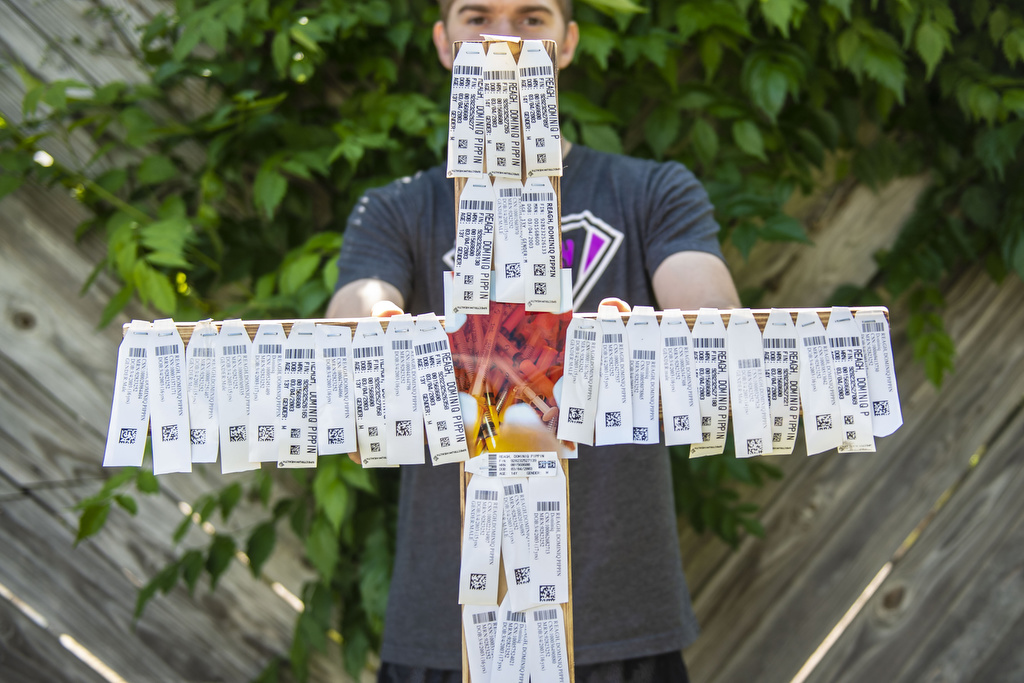
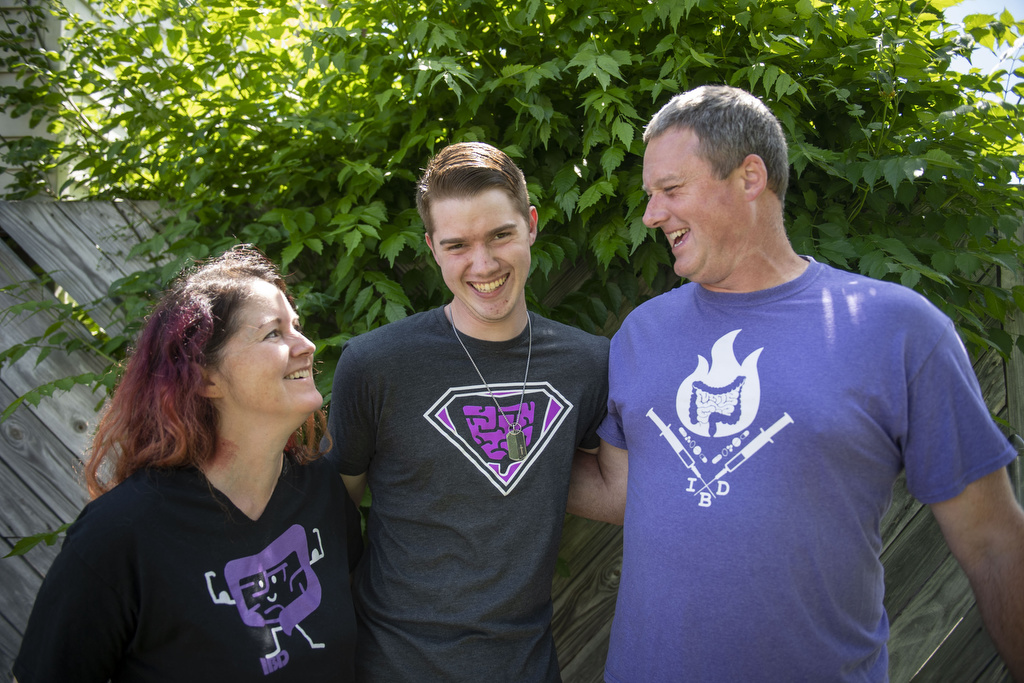
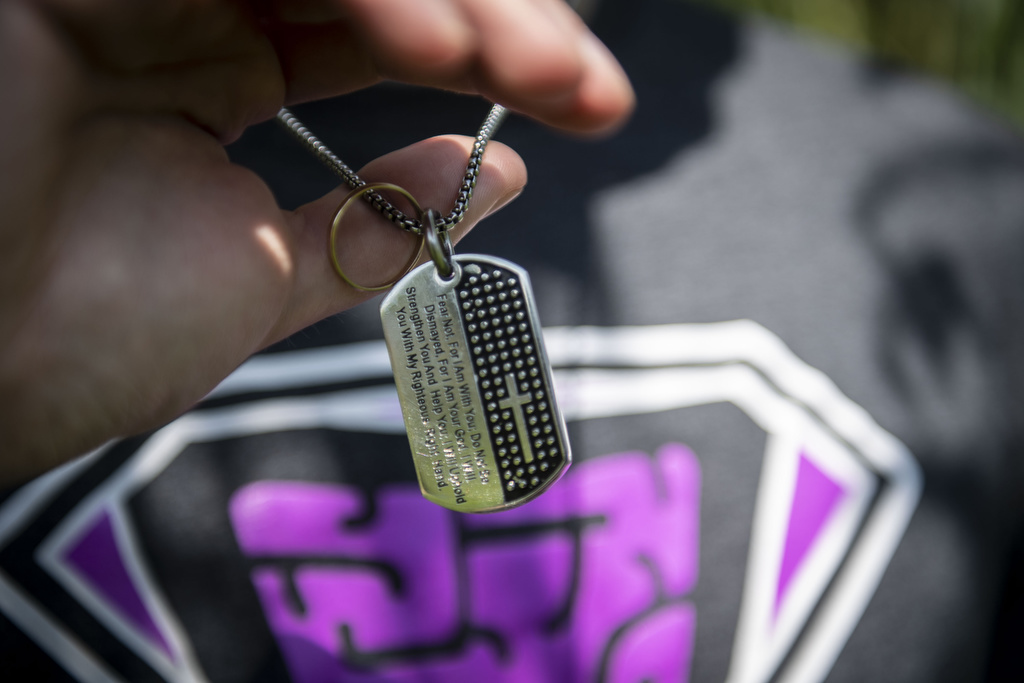
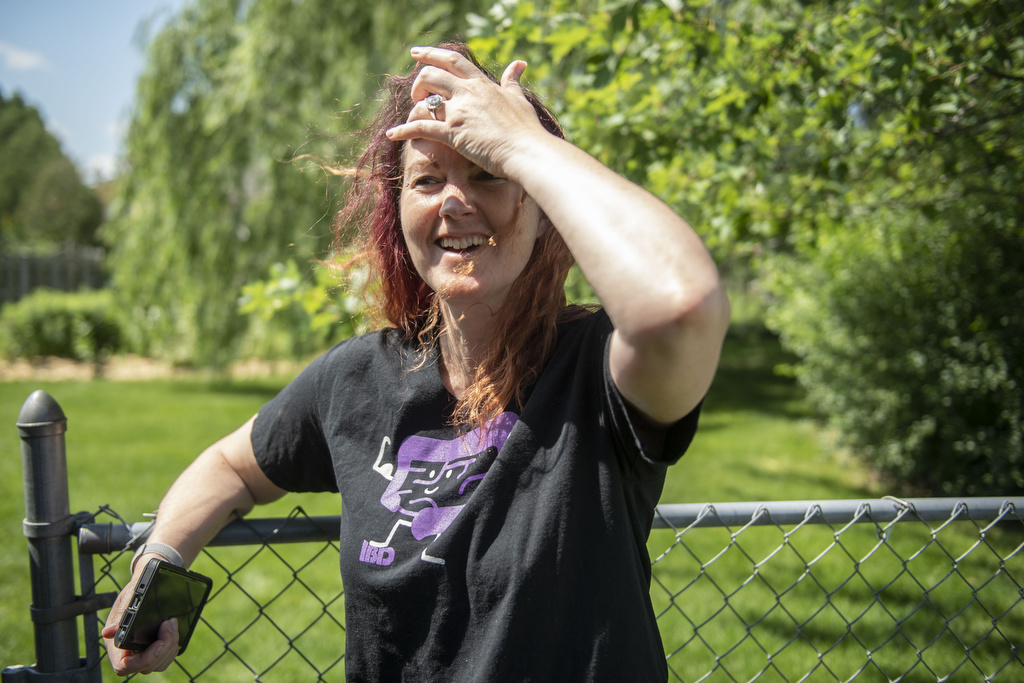
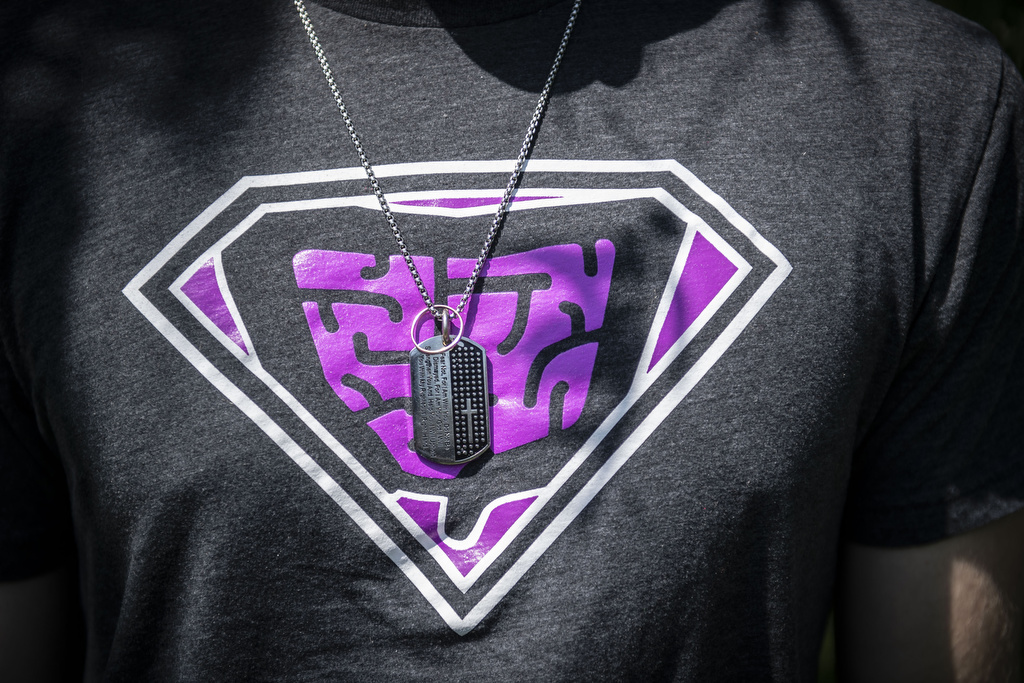
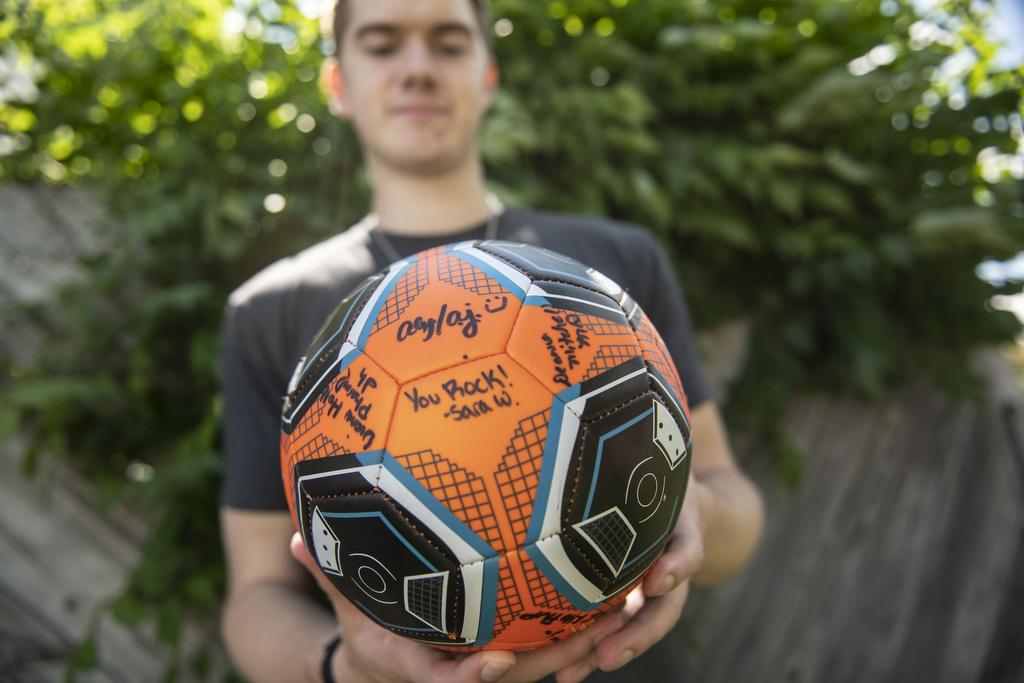

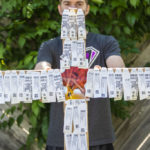





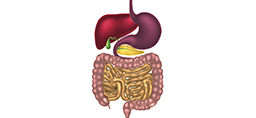 /a>
/a>
 /a>
/a>
 /a>
/a>
Crohns isn’t and a autoimmune problem ?
Thank you so much for the writeup, Allan! Thank you for the beautiful photos, Taylor! If anyone is interested in one of D’s T’s designs, all of the money goes to the Crohn’s & Colitis Foundation and they’re all available here: http://www.bonfire.com/store/ds-ts/
Such an inspirational story! My sister has been living with Crohn’s disease since she was a child as well! So glad to see others with such a positive outlook! Congrats on the scholarship as well!